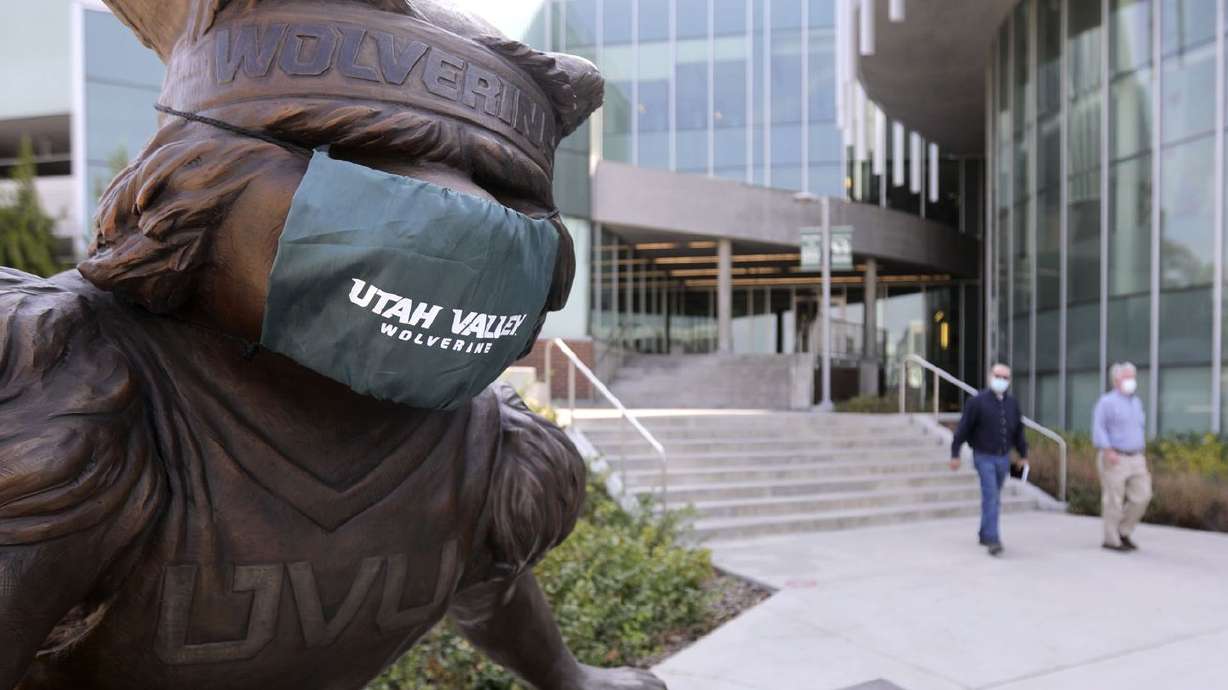Estimated read time: 3-4 minutes
This archived news story is available only for your personal, non-commercial use. Information in the story may be outdated or superseded by additional information. Reading or replaying the story in its archived form does not constitute a republication of the story.
SALT LAKE CITY — Utah's exit from the student loan processing business would mean creation of a state endowment estimated between $260 million and $300 million that would fund college scholarships and other programs, under legislation endorsed Wednesday by the Senate Education Committee.
The bill, SB172, sponsored by Sen. Evan Vickers, R-Cedar City, would create a permanent endowment that would be managed by the state treasurer. Interest earnings would be used to fund scholarships and other initiatives of the Utah System of Higher Education, which would require approval of the Utah Legislature annually.
Last fall, the Utah Board of Higher Education authorized the sale of the Federal Family Education Loan Program portfolio administered by the Utah Higher Education Assistance Authority. The authority is a subsidiary of the Utah System of Higher Education.
Financial advisers estimate the net proceeds of the sale of the $1.2 billion federal student loan portfolio managed by the authority could yield $260 million to $300 million, said Utah Commissioner of Higher Education David Woolstenhulme.
Asked if the fund would be used to construct buildings on college campuses, Woolstenhulme said emphatically, "It will not fund buildings."
The intent is to fund initiatives that support the Board of Higher Education's priorities, which include college access, affordability, completion and workforce connections, he said.
Woolstenhulme said one such initiative is the Utah College Advisor Corps, which helps high school students make successful transitions to college under the guidance of "near peer" college access advisers who work in their high schools.
The Utah Higher Education Assistance Authority has agreed to fund that program for the next three years, but in the future it would be something that the Board of Higher Education could consider funding with the interest earnings from the endowment.
The program's early work has produced positive results as college advisors focus on students who "really, probably wouldn't be in our system today if it wasn't for the college access advisors talking about scholarships, talking about financial aid, talking about how to fill out an application for admissions," Woolstenhulme said.
The sale of the $1.2 billion student loan portfolio should be completed by the end of February, he said.
The bill also directs the board to prepare recommendations for discontinuing the Utah Higher Education Assistance Authority.
Since its creation in 1977, the authority has issued and provided loan guarantees to students in excess of $6.8 billion. It acquired more than $10.2 billion in Federal Family Education Loan Program loans from other vendors.
The authority has also provided more than $263.5 million of loan forgiveness and interest rate reduction benefits. It also provided more than $12 million in grants to 13,100 students to pay for college.
Federal student loan servicers are the intermediary between borrowers and the federal government that lent them money for college. Servicers collect student loan bills and track whether they are paid on time. In recent years, a growing number of private, online companies that service student loans have entered the arena.
"Since 2010, UHEAA has been a servicer for the federal loan program, but recent contracts with the federal government have proven unprofitable. So what we're proposing in this bill is that we unwind that loan program and take the proceeds that are left over and create an endowment that can be used for a scholarship program," Vickers said.
The bill, unanimously approved by the committee, moves to the Utah Senate for further consideration.










